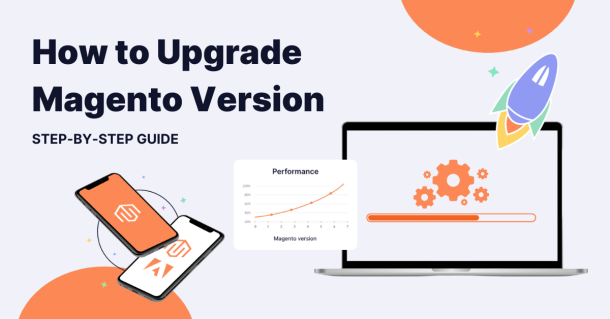Online Real Estate Startups: Tools, Technologies, and Costs
Online real estate is a booming industry that offers innovative solutions for buying, selling, renting, and managing properties. Whether you want to create a platform for connecting buyers and sellers, a marketplace for renting out spaces, or a service for appraising and inspecting properties, you will need some tools and technologies to get started. In this article, we will explore some of the best options for online real estate startups, and estimate the costs involved.
Tools for Online Real Estate Startups
One of the first things you will need to launch your online real estate startup is a website. A website is your online storefront, where you can showcase your brand, your value proposition, and your services. A website also allows you to generate leads, collect feedback, and communicate with your customers.
There are many tools available for creating and managing a website, but one of the most popular and versatile ones is WordPress. WordPress is a free and open-source content management system (CMS) that powers over 40% of the web1. WordPress allows you to create and customize your website using thousands of themes and plugins, without requiring much coding knowledge. WordPress also has a large and active community of developers and users who can help you with any issues or questions.
Some of the benefits of using WordPress for your online real estate startup are:
- It is easy to use and maintain. You can update your website content, design, and functionality with a few clicks, without hiring a developer.
- It is SEO-friendly. WordPress helps you optimize your website for search engines, by providing features such as permalinks, sitemaps, meta tags, and more.
- It is scalable and secure. WordPress can handle high traffic and large databases, and has built-in security measures to protect your website from hackers and malware.
- It is compatible with many other tools and services. You can integrate your WordPress website with various platforms and tools, such as social media, email marketing, analytics, payment gateways, and more.
Some of the drawbacks of using WordPress for your online real estate startup are:
- It can be vulnerable to attacks. WordPress is a popular target for hackers, who exploit its vulnerabilities and plugins. You will need to keep your WordPress software and plugins updated, and use security plugins and backups to prevent and recover from attacks.
- It can be slow and resource-intensive. WordPress can consume a lot of server resources, especially if you use many plugins and themes. You will need to optimize your website performance, by using caching, compression, and CDN services, and choosing a reliable hosting provider.
- It can be limited in functionality. WordPress may not have all the features and functionalities you need for your online real estate startup, such as advanced search, filtering, mapping, and listing options. You may need to use custom plugins or code, or hire a developer to create them for you.
Another tool you will need for your online real estate startup is a CRM (customer relationship management) system. A CRM system helps you manage your leads, customers, and transactions, by storing and organizing their data, and automating and tracking your interactions with them. A CRM system can help you improve your customer service, increase your sales, and grow your business.
There are many CRM systems available for online real estate startups, but one of the most popular and powerful ones is HubSpot. HubSpot is a cloud-based CRM platform that offers a suite of tools for marketing, sales, service, and operations. HubSpot allows you to create and manage your contacts, deals, tasks, and pipelines, and sync them with your website, email, and other tools. HubSpot also provides analytics and reports to help you measure and improve your performance.
Some of the benefits of using HubSpot for your online real estate startup are:
- It is free and easy to use. You can start using HubSpot CRM for free, and upgrade to paid plans as you grow. HubSpot has a user-friendly interface and a drag-and-drop editor, that make it easy to create and customize your CRM system.
- It is comprehensive and integrated. HubSpot offers a complete solution for your online real estate startup, by providing tools for marketing, sales, service, and operations, that work together seamlessly. You can also integrate HubSpot with over 500 other apps and services, such as WordPress, Gmail, Facebook, and more.
- It is flexible and customizable. HubSpot allows you to tailor your CRM system to your specific needs and goals, by adding and removing features, fields, and workflows. You can also create custom dashboards, reports, and templates, to suit your preferences and branding.
Some of the drawbacks of using HubSpot for your online real estate startup are:
- It can be expensive and complex. HubSpot’s free plan has limited features and contacts, and its paid plans can be pricey, especially for small businesses. HubSpot also has a steep learning curve, and may require training and support to use it effectively.
- It can be restrictive and incompatible. HubSpot may not have all the features and functionalities you need for your online real estate startup, such as MLS integration, property valuation, and document management. You may need to use third-party apps or services, or hire a developer to create them for you. HubSpot may also not work well with some of the tools and platforms you use, such as WordPress, Mailchimp, and Stripe.
Technologies for Online Real Estate Startups
Another thing you will need to launch your online real estate startup is a technology stack. A technology stack is a combination of software and hardware that powers your website and app, and enables you to create and deliver your services. A technology stack consists of four main components: front-end, back-end, database, and server.
The front-end is the part of your website or app that your users see and interact with, such as the layout, design, and functionality. The front-end is usually built using HTML, CSS, and JavaScript, and frameworks and libraries such as Bootstrap, React, and Angular.
The back-end is the part of your website or app that runs behind the scenes, and handles the logic, calculations, and data processing. The back-end is usually built using programming languages such as PHP, Python, and Ruby, and frameworks and libraries such as Laravel, Django, and Rails.
The database is the part of your website or app that stores and retrieves your data, such as your users, properties, and transactions. The database is usually built using software such as MySQL, MongoDB, and PostgreSQL.
The server is the part of your website or app that hosts and delivers your files and data, and connects your front-end and back-end. The server is usually built using software such as Apache, Nginx, and Node.js.
There are many possible combinations of technologies for your online real estate startup, but one of the most popular and modern ones is the MERN stack. The MERN stack consists of MongoDB, Express, React, and Node.js, and offers a full-stack JavaScript solution for your website and app.
Some of the benefits of using the MERN stack for your online real estate startup are:
- It is fast and efficient. The MERN stack uses JavaScript as the main programming language, which means you can use the same language for both the front-end and the back-end, and avoid compatibility issues. JavaScript is also a high-performance and versatile language, that can handle complex and dynamic features and functionalities.
- It is scalable and reliable. The MERN stack uses MongoDB as the database, which is a NoSQL database that can store and process large amounts of data, and scale horizontally as your business grows. MongoDB is also a flexible and schema-less database, that can adapt to changing data structures and requirements.
- It is modern and popular. The MERN stack uses React as the front-end framework, which is a powerful and popular library for building user interfaces. React uses a component-based architecture, that makes it easy to create and reuse UI elements, and a virtual DOM, that makes it fast and responsive. React also has a large and active community of developers and users, who can help you with any issues or questions.
Some of the drawbacks of using the MERN stack for your online real estate startup are:
- It can be difficult and time-consuming. The MERN stack requires a high level of proficiency in JavaScript, which is a complex and evolving language, that has many features and syntaxes. The MERN stack also requires a lot of configuration and setup, and may involve using many tools and services, such as webpack, babel, npm, and more.
- It can be insecure and unstable. The MERN stack relies on many third-party packages and libraries, which may have vulnerabilities and bugs, and may not be updated or maintained regularly. You will need to keep your MERN stack updated, and use security measures and best practices, to prevent and fix any issues.
- It can be limited and incompatible. The MERN stack may not have all the features and functionalities you need for your online real estate startup, such as SEO, authentication, and payment options. You may need to use additional packages and libraries, or hire a developer to create them for you. The MERN stack may also not work well with some of the tools and platforms you use, such as WordPress, HubSpot, and Stripe.
Estimated Costs
-
CMS:
- WordPress/Joomla: Basic setup can be as low as $50-$200 for themes and hosting. Premium plugins may add to the cost.
- Drupal: Might incur additional costs for custom development.
-
Open Source Programs: Generally free, but customization and support can add to the cost.
-
Programming Technologies:
- Development costs vary significantly based on the complexity of the website and the geographic location of developers. Roughly, it can range from $10,000 to $50,000.
-
Hosting:
- Basic shared hosting can start from as low as $5/month. Cloud hosting can range from $20 to $100/month based on traffic and data needs.
-
Other Costs:
- Domain Name: Around $10-$50/year.
- SSL Certificate: From $0 for basic ones (Let’s Encrypt) to over $100/year for advanced options.
- Maintenance and Support: Can range from $50 to $500/month.
Final Thoughts
While the above gives a comprehensive overview, the final selection should align with your specific business needs, technical expertise, and budget. It's advisable to start with a minimum viable product (MVP) and scale as your startup grows. Always factor in the long-term scalability, security, and maintenance aspects while making technology choices.



